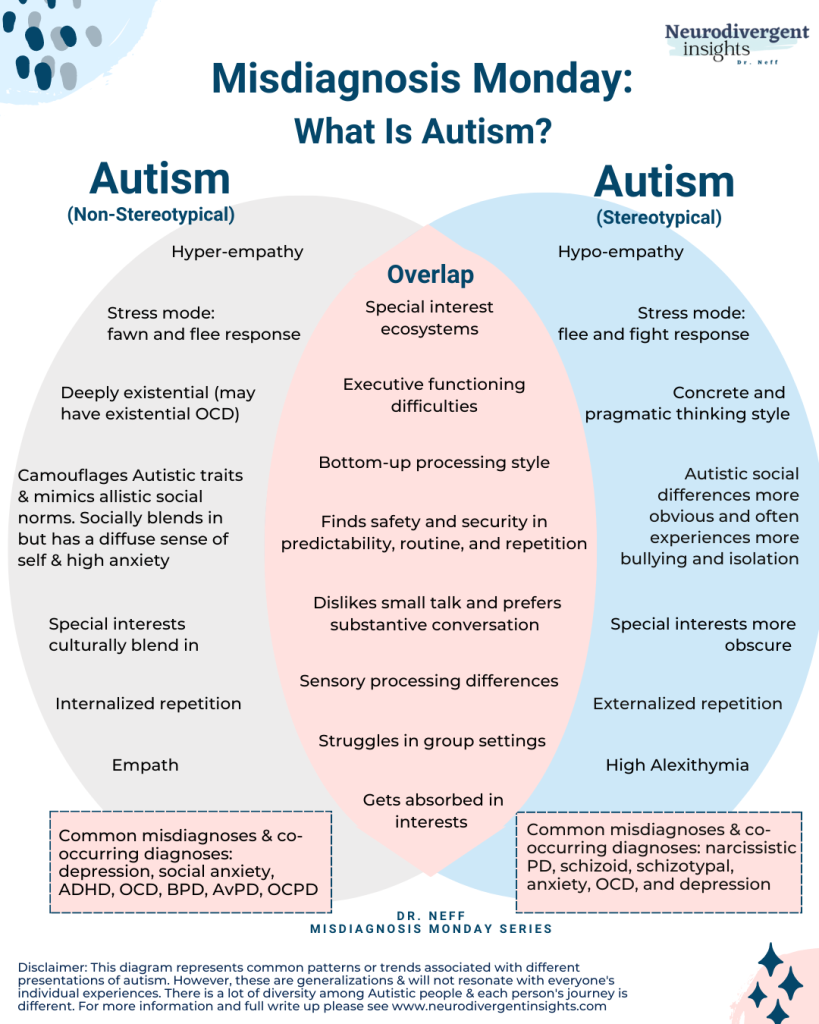Diagnosing autism in adults in Australia presents distinctive difficulties and factors that reflect the developing knowledge of the range and the diverse needs of individuals. Unlike childhood diagnoses that always depend on early developing guns, adult autism examination involves recognizing refined behavioral styles, interaction variations, and social difficulties that may have been camouflaged on the years. The procedure needs a comprehensive and culturally sensitive strategy that acknowledges the varied skills and experiences of an individual seeking assessment.
Australia’s diagnostic construction for person autism is influenced by internationally recognized criteria such as the Diagnostic and Mathematical Information of Emotional Disorders (DSM-5) and the International Classification of Diseases (ICD-10). Nevertheless, specialists doing assessments in Australia are prompted to follow a person-centered, strengths-based perception that thinks an individual’s unique neurodiversity and national context.
Option of diagnostic companies is a crucial facet of the Australian landscape, and initiatives are being created to handle disparities in usage of assessments across regions. Urban areas generally have more methods and specific professionals, while rural and remote parts may possibly face issues in providing timely and comprehensive diagnostic services. Increasing attention and developing diagnostic volume in underserved parts stay central items for improving accessibility.
The diagnostic process on average requires a multidisciplinary group, including clinical psychologists, psychiatrists, speech pathologists, and occupational therapists. That collaborative strategy assures a holistic assessment that views cognitive abilities, language proficiency, physical sensitivities, and psychological wellness factors. Furthermore, professionals are increasingly recognizing the significance of involving individuals in the diagnostic process, valuing their self-reported activities and insights.
Social competence represents an essential role in the diagnostic journey for adults seeking evaluation in Australia. Indigenous Australians, culturally and linguistically varied towns, and people from various skills involve designed methods that know the impact of tradition on phrase and notion of autism. Professionals are inspired to take part in constant national competency education to make sure a nuanced comprehension of varied perspectives.
Late-diagnosed adults may possibly experience special problems as they navigate the complex emotions and modifications that are included with knowledge their neurodivergent identity. The diagnostic journey frequently stretches beyond the review itself, involving post-diagnostic help, including counseling, psychoeducation, and the growth of coping strategies designed to the individual’s talents and challenges.
The acceptance of gender range within the autism variety is yet another growing part of diagnosis in Australia. Old-fashioned diagnostic criteria, of traditionally based on generally male presentations, might not record the varied words of autism in girls and people who have diverse gender identities. Efforts are underway to refine diagnostic instruments and raise understanding of the Autism in children experiences of autistic people over the sex spectrum.
Study and advocacy perform built-in functions in surrounding the ongoing future of person autism examination in Australia. Continuing studies contribute to a deeper understanding of the prevalence, activities, and needs of people on the spectrum. Advocacy companies, both national and regional, function towards destigmatizing autism, raising understanding, and influencing policy improvements that prioritize the addition and well-being of autistic people in Australian society.

In summary, diagnosing autism in adults in Australia requires a dynamic and person-centered strategy that acknowledges the individual’s distinctive talents, challenges, and ethnic context. The continuing attempts to improve convenience, cultural competency, and understanding subscribe to a more inclusive and encouraging environment for adults seeking examination and moving their neurodivergent identities in the Australian context.
